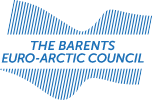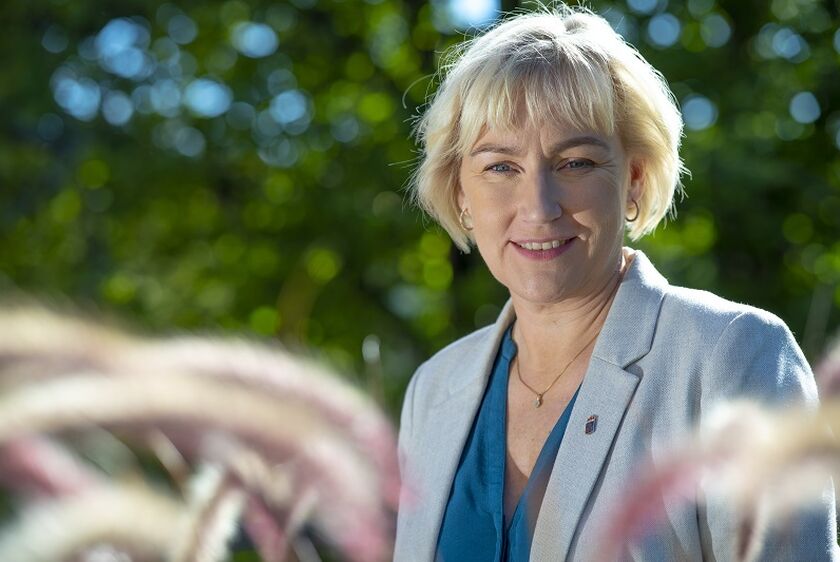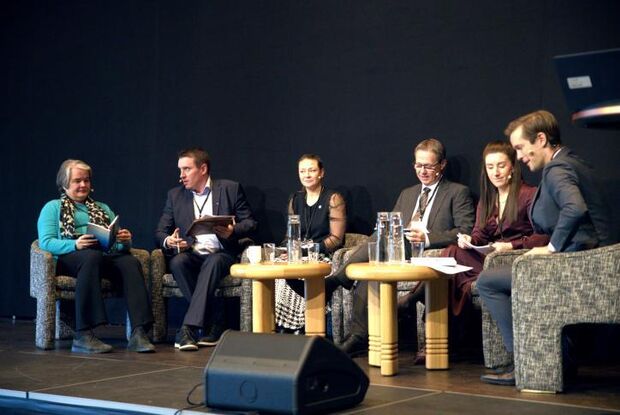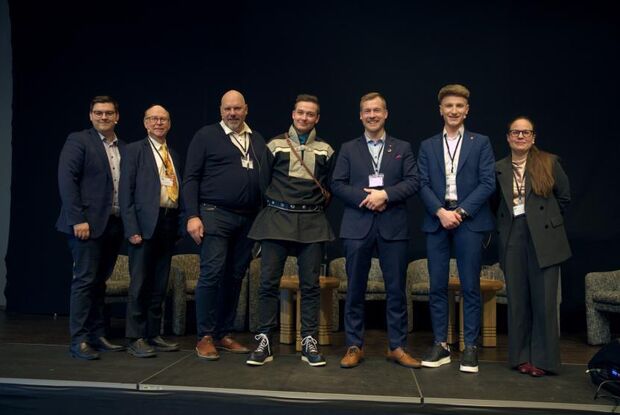Helene Hellmark Knutsson has a broad background as a politician and leader from national, regional and municipal levels. Helene has been the Member of the Swedish Parliament and the Deputy Chair of the Committee of Industry and Trade. Between 2014 and 2019 she was holding the post of the Minister for Higher Education and Research.
Interactions in our region and between our countries have been ongoing for centuries. When stakeholders from national, regional and local levels together with the indigenous peoples and the youth are sitting at the same table it creates an unique environment and spirit.
Västerbotten has been a member of the Barents Cooperation almost from the start 28 years ago and now we are chairing the Barents Regional Council. Even before the chairmanship the Barents Cooperation has been important for Västerbotten. We have had a lot of activities in Västerbotten the last couple of years as Sweden was recently chairing the cooperation on the national level and a lot of meetings and activities took place in Västerbotten.
The biggest event was the EU Arctic Forum and the BEAC Ministerial meetings in October 2019, which gathered over 400 participants and decision-makers from all over the world. There is a lot of interest for the Arctic and Barents Cooperation from outside the region and that is something that we shall be glad for and enhance through our chairmanship.
When Västerbotten started do draft our Barents Regional Council Chairmanship program almost two years ago no one could foresee the development that we are facing today. But many of our topics in our chairmanship like e-health, turned out to be really relevant topics in this time. Another relevant topic in our chairmanship is gender equality in a time after #metoo. We are for the moment working with this issue in a joint project “Equal Barents” together with our partners in North-West Russia, not least with our twin region the Republic of Karelia.
Västerbotten is also working very closely with Norway, who holds the national chairmanship, and we have together hosted many seminars. It is often said that the dynamics between the regional and the national levels are what makes the Barents Cooperation unique and this is something that we really can underline.
In some way we believe, that the Barents Cooperation will emerge stronger from this situation. We are developing new forms of interactions; we do not always need to travel long distances to meet anymore and our feeling is that we can meet more often when we meet like this and we get higher participation from all stakeholders.
Much of this has to do with the stable foundation that the Barents Cooperation rests upon. A foundation that has emerged throughout the years and that we now can continue to build upon despite the current situation where we cannot meet face to face.
The strength of the Barents Cooperation lies in the people of the region, their knowledge, experience, cultural expressions, diversity and heritage. The future of the Barents Region relies in continued efforts and investments in youth, culture, health and social issues, education, research, and business relations between our countries.
The Barents Cooperation is a long-lasting stable cooperation and Västerbotten will keep on working in that spirit.
(Text and photo have been kindly provided by the County Administrative Board of Västerbotten)









